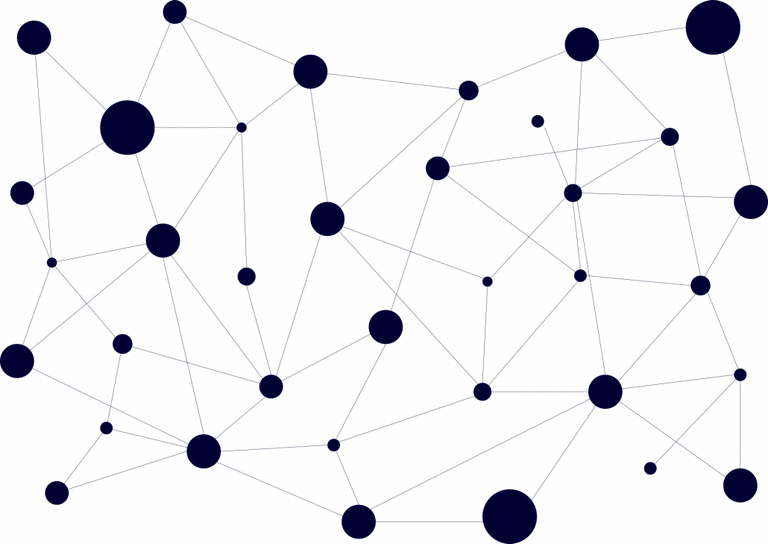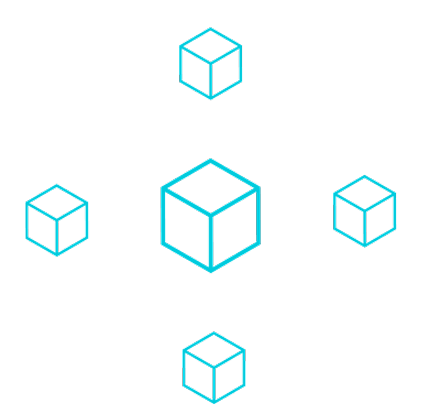
Blockchain Is Omnipresent Part I:
Monkondmt' Notes.
We will be going through the following.
- What is Blockchain?
- Smart Contracts
- Ivan On tech Blockchain Course @ivanli
What Is Blockchain?
Starting off by breaking down "Block" & "Chain", this way we can understand it a little more deeper than just saying "Blockchain is a decentralized database and peer to peer network that stores a registry of transactions".
What is a Block: A set of data lumped together and then chained to one another with cryptography, also a block is a bunch of transactions.
What is the Chain: Each block builds on from the previous block.
To add more clarity a registry of transactions is a phonebook or directory, while having a peer to peer network.
Which is in other words having anyone with internet being able to participate in the blockchain.
Like many humans in this world blockchain also has its own traits.
Traits:
- Permissionless (accessible by anyone)
- Transparent (visible to everyone)
- Immutable (Permanently unchangeable)
- Secure (not easy to tamper with)
every node across the network has its own local copy of the blockchain
Blockchain is a connective tissue that allows you to trade items (digital or physical) of value without a middleman.
If you are still uncertain here is a 2 minute clip.
Smart Contracts
Smart contracts are like the contracts we are use to but with a twist.
It is a small computer program that runs on a blockchain, you can think of a smart contract as an “if this then that” program that executes upon its conditions being triggered, these are often called “self executing” contracts because they guarantee the business logic that they represent, since the code runs automatically ( rules and conditions as code/ an agreement ),
no human intervention was needed during this process.
The smart contracts are immutable, so once you deploy the coded agreement into the blockchain there is no way to change it.
The programming language used to make smart contracts is solidity which is run on the ethereum platform, This programming language can be compared to JavaScript.
It all boils down to the question "what are the use-cases of smart contracts"?
The bigger picture of smart contracts inevitably leads us to a fully automated corporation or firm, also known as DACs & DAOs ( Decentralized Autonomous Corporations & Decentralized Autonomous Organisations )
These would be described as a "nexus of contracts" where the whole firm or corporation runs on smart contracts, removing humans from the equation and relying on the network to execute the job for you.
Vitalik Buterin simplifies smart contracts in this clip.
Ivan On tech Blockchain Course
This is a course instructed by the youtuber IvanOnTech @ivanli.
https://ivanontech.teachable.com/p/blockchain-fundamentals
Q&A
Provenance:
How does blockchain enable digital provenance?
By tracking goods, funds and ingredients to its origin having let the customers get fully detailed information of a certain good, it's origin and history by using blockchain because of the immutability and transparency knowing the chain of blocks can't be tampered with.
Why doesn’t a normal database bring the same provenance?
Having a central server gives the authority ability to change certain data which shows us that it is not immutable like blockchain data so why wouldn't the authority change the data for their own benefit, having to have trust to the authority who controls the servers is the issue in itself.
Why is digital provenance such a great benefit to many businesses?
It's great for many businesses by satisfying your customers, having your customer get a detailed background of a certain good and know who has made it, how it was made and what was used to make it.
Trusting a networks transparency and immutability than a 3rd parties word.
Consensus
What does it mean when we say that in blockchain, consensus determine the truth?
When not having a central authority, nodes collectively decide on what state the database should be in what transaction should be accepted or not.
How is this different from how truth is determined in a central database?
Central authorities will have the owner take power of the data where he can personally change, edit or delete certain information whenever they like, big corporations have a lot of power over users data.
What do we mean with information silos?
Different companies having different clouds of databases which is the opposite of the blockchains global infrastructure.
Having informational silos slows down the process of transferring data from one silo to another while a global database is more efficient.
Security & Immutability
How does a decentralized network increase security?
It increases security by voluntary security participation using PoW ( proof of work ) hashing methods for bitcoin platform users, having mathematical computational problems create security, more computers mining creates more security.
Having a few nodes attacked wouldn't affect the network unless a 51% attack happens.
Why is it dangerous to trust a central authority for security?
Having a central authority for security is risky knowing there is a chance of getting hacked, also having a central authority has the risks of corruption and power to share your private information.
End Of Part I
Just to be clear we haven't even scratched the surface of my notes.
Having that said if you found this informative, i will continue posting the rest of the notes in different parts.
At the end of the day my endeavor is to express what I've learned for everyone willing to learn.
You know what they say sharing is caring.

✅ @monkonacid, I gave you an upvote on your first post! Please give me a follow and I will give you a follow in return!
Please also take a moment to read this post regarding bad behavior on Steemit.